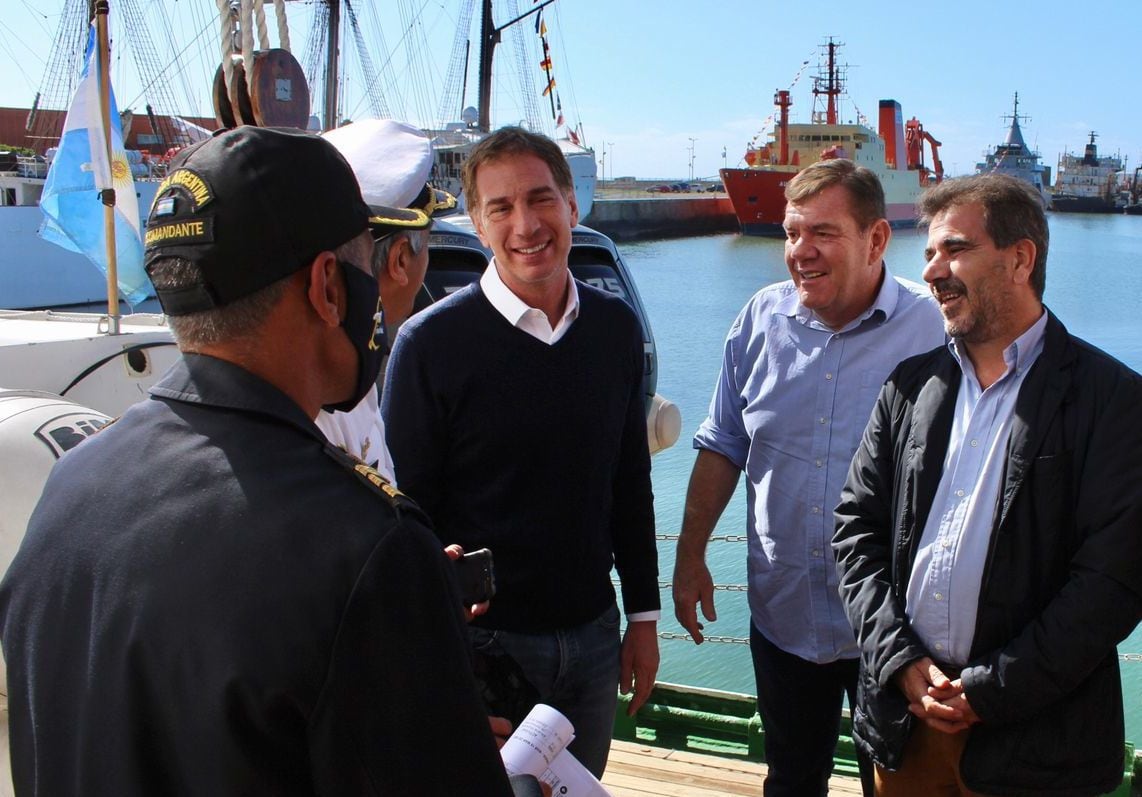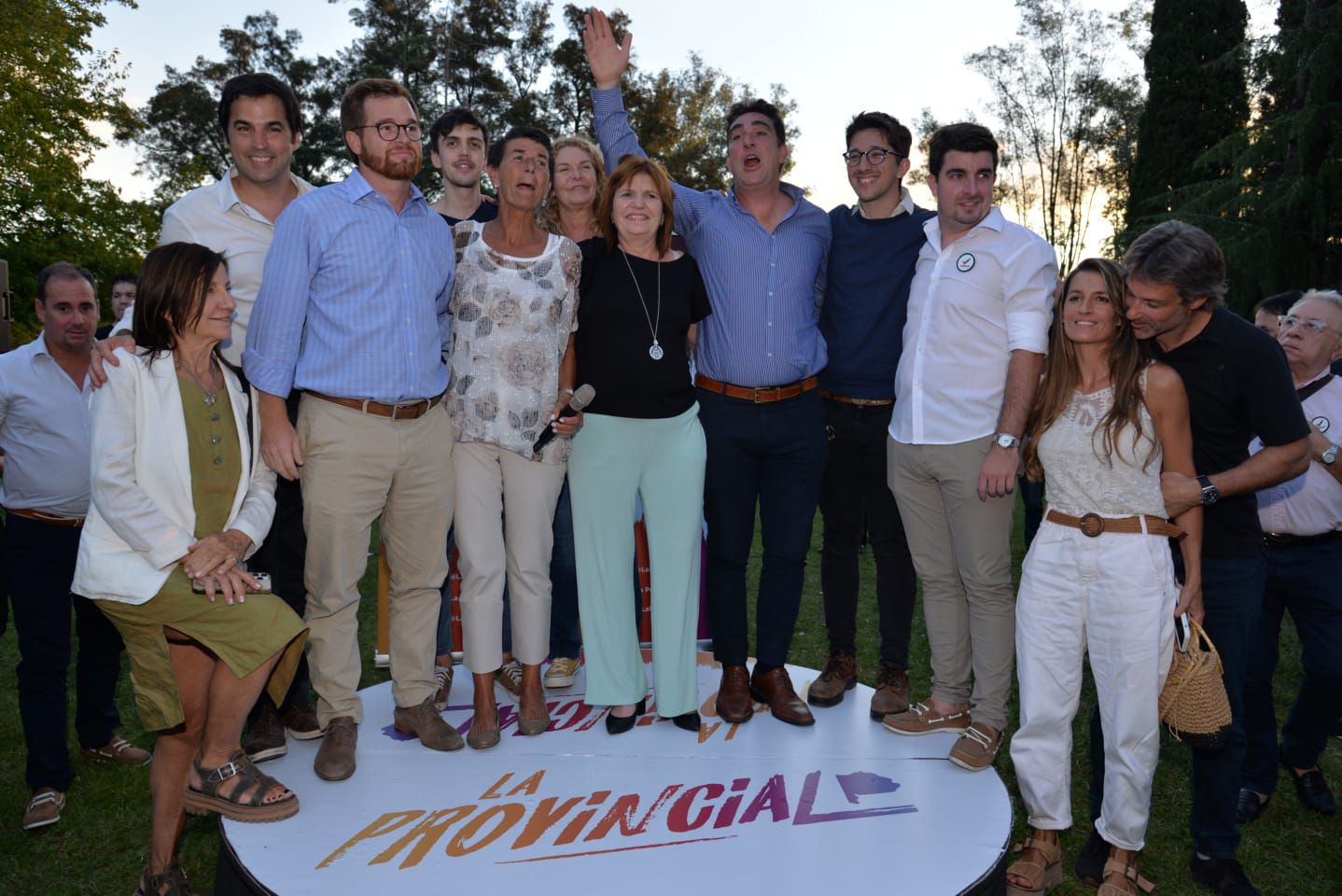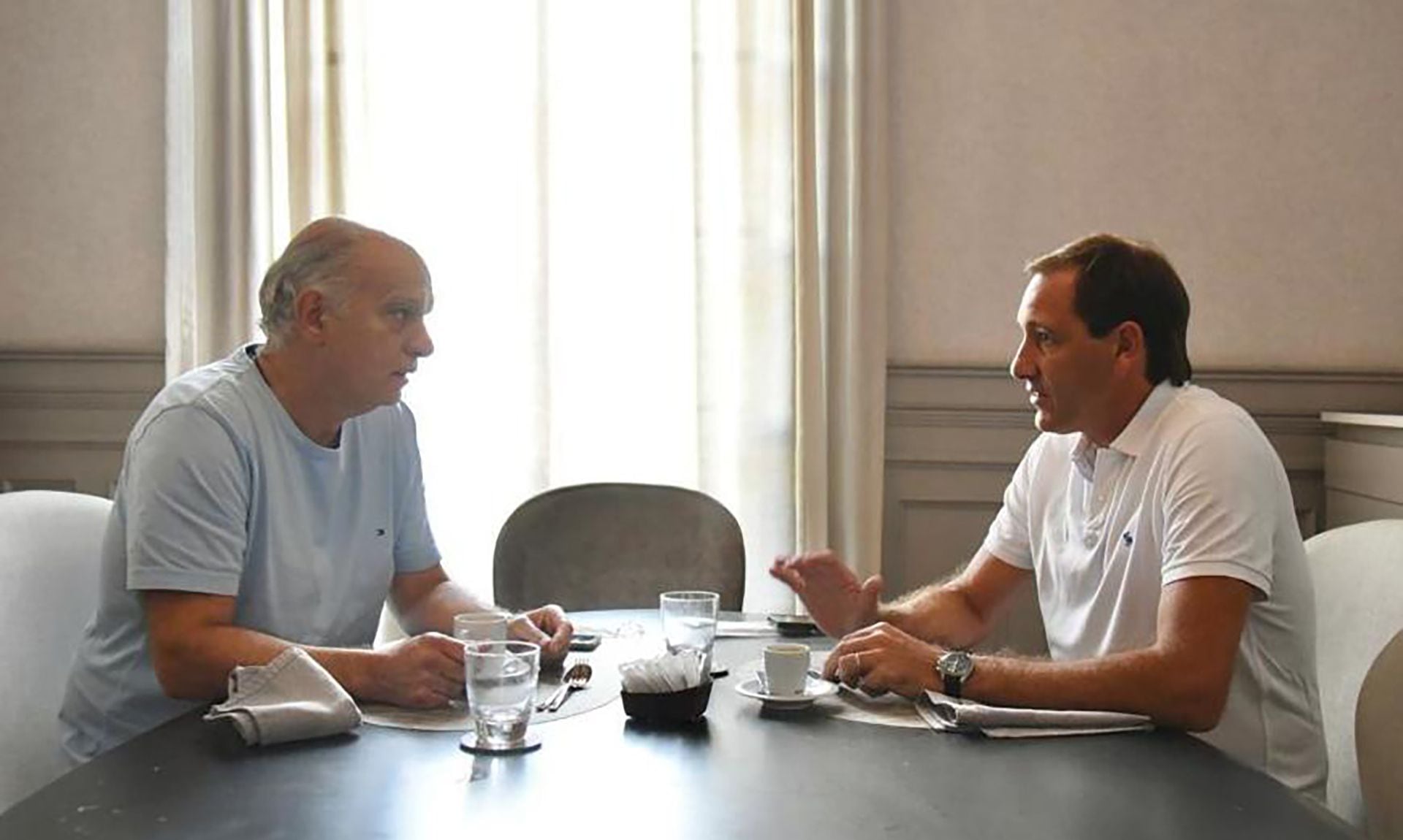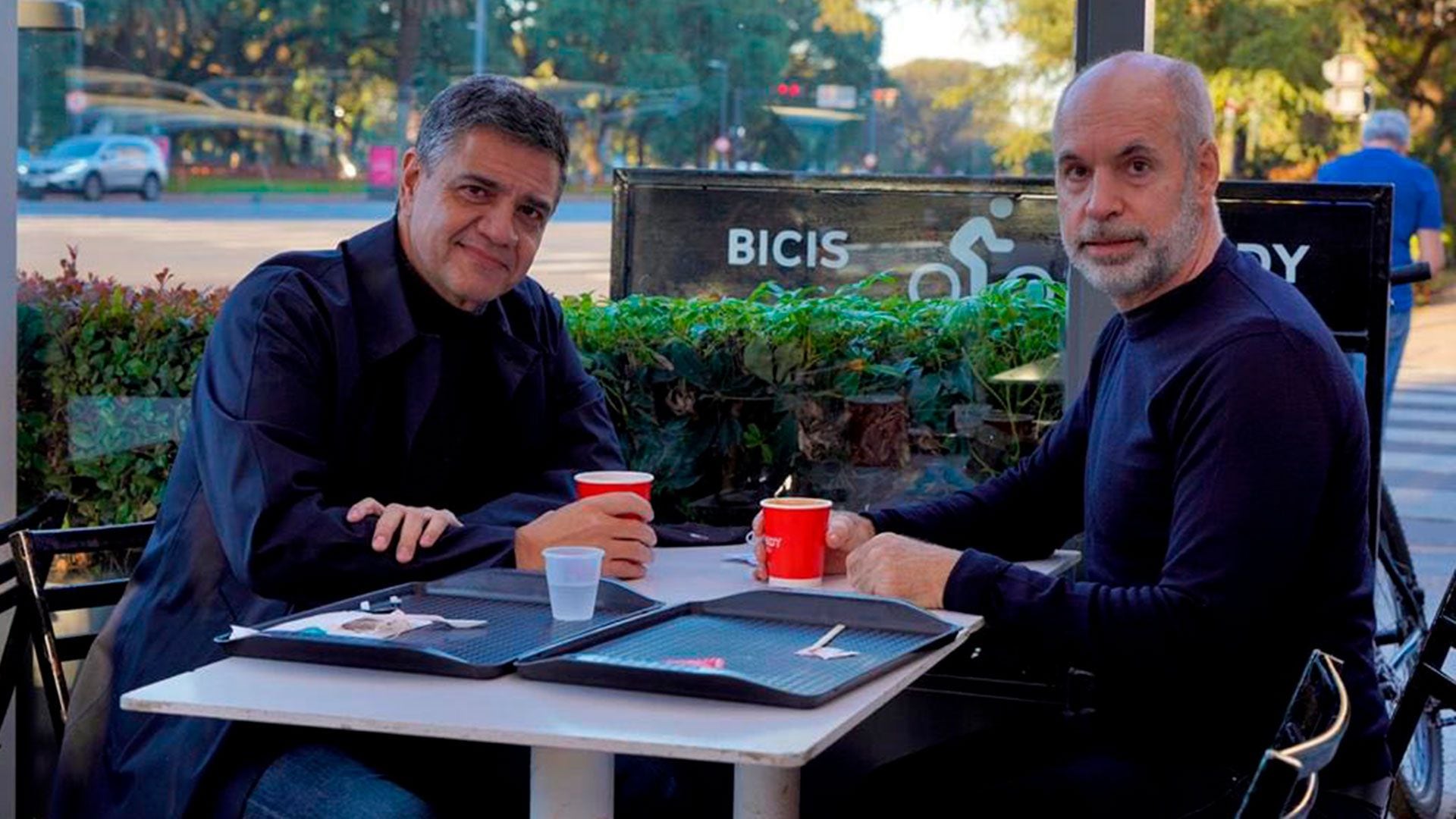
As 2023 approaches, the PRO multiplies the candidates for governor of the province of Buenos Aires. The electoral triumph of Diego Santilli in a district that seemed to be the exclusive property of Peronism, curiously, did not make him the undisputed candidate of his party to succeed Axel Kicillof, but the strategy agreed by the top referents is clear: let everyone go out and tour the territory and the chosen one will be the one that will be best installed next year between the leadership and in the polls.
This is the same position shared by leaders such as Mauricio Macri, Horacio Rodríguez Larreta and Patricia Bullrich. In any case, no one imagines that more than one candidate of his own will come forward to compete in the PASO against the UCR because the chances of winning could be reduced. Nor is it envisaged that internal parties will be held so that only one applicant reaches the primaries.
“This is not the time for candidacies; people are going to punish those who rush while there are so many concrete problems,” is the argument repeated by the political leadership, although those who have aspirations to lead the Province need to be active, approach the neighbors and negotiate with the territorial chiefs. Santilli, in that sense, runs with an advantage. It has the political and economic backing of Rodríguez Larreta. And if in the 2021 election campaign he traveled more than 30,000 kilometers to visit 98 municipalities (something that allowed him to win in 72% of the communes he was in), the day after winning the elections he resumed his provincial tours and it is estimated that by next August he will have completed his presence in all 135 municipalities Buenos Aires.
What Santilli achieved was a feat. He won in the last elections with a difference of 1.3 points over the All Front (39.81% against 38.53%), but he achieved something that had not happened since 1983: he won the entire united Peronism. A more detailed analysis of the votes, carried out by the santillista team, confirms that, even with 10 points less electoral participation, the Juntos list exceeded by more than 4 points than the space won in the 2019 elections. And that the payroll headed by Santilli was imposed in 109 of the 135 municipalities in Buenos Aires, which represent 80% of the total, and even won in 66 more than two years ago. Within that platoon, Juntos won in 44 Peronist or Kirchnerist municipalities and in 7 neighborhood counties.

Even, according to that report, if the 2019 elections are compared with those of 2021, Together for Change grew 4.21 points in the province of Buenos Aires. With such results, why is Santilli not the candidate for governor of the entire PRO? It may be, in reality, but today there are differences that exist at the national level: he is the chosen one of Rodríguez Larreta, not Bullrich nor, for now, not Macri's. And the provincial intern also influences: the mayors of the PRO do not have a unanimous opinion. There are community chiefs who seek to run or who prefer a pair to compete for government. There are even those who object to the larretista style in the political armed because of its “very porteño gaze” and the profusion of resources.
Santilli even added some resistance in recent weeks for having become the coordinator of the National Board of the Larreta Presidente project. Some people from Buenos Aires believe that this task will take away time to dedicate to the problems of the provincial district. Of course, that structure also includes Cristian Ritondo, head of the PRO deputies block, who 24 hours ago said: “I want and intend to govern the Province,” he told Radio Continental.
Santilli and Ritondo consider themselves friends, they are actively working to get the head of government from Buenos Aires to move to Casa Rosada and, strangely, they are already competing to become the candidate for governor of the PRO, encouraged by Rodríguez Larreta himself. Both even began to tour some cities of the Province together. At the beginning of the month they were in Zarate and last Saturday they visited Mar del Plata and Ayacucho. The plan is to repeat these joint incursions every fortnight.
In the rhythondism they say that they do not want to alter the fair game that governs Santilli, but they warn that the former vice chief of Buenos Aires has difficulties because he “reaches the top” to the Province while the head of the PRO deputies has more support in the provincial interior. As a traditional ally of María Eugenia Vidal, Ritondo inherited much of the leaders aligned with the former governor. And his relatives highlight the large number of mayors, legislators and councillors who signed a letter promoted by him in which, in criticizing the increase in withholding, they demanded that Kicillof stop being the “delegate” of the national government.

There are 5 national deputies, 2 provincial senators, 8 Buenos Aires deputies, 5 mayors and a hundred councillors. Among the signatories that the Ritondo sector considers as demonstrating its internal strength are Alejandro Finocchiaro, former Minister of Education at Cambiemos; vidalists Alex Campbell and Walter Lanaro, and community chiefs such as Manuel Passaglia (San Nicolás), Sebastián Abella (Campana), Martín Yeza ( Pinamar), Lisandro Matzkin (Colonel Pringles) and Jorge Etcheverry (Wolves).
Patricia Bullrich doesn't sit still either. It wants to support its presidential project with its own presence in the decisive province of Buenos Aires. That is why since the beginning of the year he began tours of different cities in Buenos Aires, reinforced the task of the national deputy Gerardo Milman, his right hand, as political shipowner in the district and last Tuesday he launched in Pilar the La Provincial group, which seeks to expand space for civil organizations and which he leads Patricia Vasquez, a lawyer who worked with Bullrich in the Ministry of Security and is a reference for the PRO in the Malvinas Argentinas party.
The event at which the group was presented were, among others, the national deputy Waldo Woff, the councilman of Tigre Segundo Cernadas, the provincial senator Juan Pablo Allan, the Buenos Aires deputy Florencia Retamoso (Milman's wife), the teacher trade unionist Facundo Lancioni, the former national deputy Nicolás Massot and the dancer Maximiliano Guerra, although it was no coincidence that Bullrich sat next to him Javier Iguacel, mayor of Capitan Sarmiento: he will be his candidate for governor.
The former Minister of Energy of Cambiemos also appears, representing bullrichism, as a member of the new leadership of the Buenos Aires PRO, which on March 13 renewed its authorities thanks to a broad agreement in which all internal sectors are represented. Its president is still Jorge Macri, current Minister of Government of Buenos Aires, supported by Daniela Reich, Buenos Aires senator and wife of the mayor of Tres de Febrero, Diego Valenzuela, also a vocal (such as Santilli and Ritondo).

To facilitate the unit list, who ceded his position as vice president was the mayor of Lanús, Néstor Grindetti, another important leader who joins the squad of candidates for governor of the PRO. Although he said that “this is not the time to talk about candidacies,” the community chief announced that he will not seek re-election and will begin to give signs of his new challenge: next week he will travel to Balcarce and Tres Arroyos as part of his plan to visit a city in the provincial interior once a month.
Grindetti is allied to the mayor of La Plata, Julio Garro, who will seek his re-election in 2023, and together they decided to convert the Hacemos group, which emerged two years ago in Lanús, into a provincial party designed as a platform that contains non-Kirchnerist Peronism to join Together for Change. The launch will take place in a fortnight in the city of Lobos.
“We estimate that today we are 5 or 6 points short of winning the elections in the Province and that is why we want to incorporate the Peronist voter, not yellow (for the PRO), but who communicates with us,” says one of its promoters. The other ideologue of this political army is Diego Kravetz, the chief of staff of Lanús and future candidate for mayor of the municipality.
Grindetti and Garro, who act in tandem with their colleague Diego Valenzuela, also with aspirations to compete for the governorate, agree to distance themselves from the provincial construction of Rodríguez Larreta: they believe that the PRO candidate to succeed Kicillof must be a mayor or, at least, have been one for better understand the problems of Buenos Aires. An elegant way to disagree with Santilli's figure. They also criticize the fact that larretismo makes politics in the Province seeking allies among leaders who respond to the mayors. It's funny: the three community chiefs were part of Grupo Dorrego, which supported Jorge Macri as a candidate for national deputy for the Province in 2021 and then turned around to support Santilli.

Although many already see him as the PRO candidate to succeed Rodríguez Larreta in the City, Jorge Macri does not rule out contesting the candidacy for governor. According to its main collaborators, “the Province is its natural place” and “it continues to have many supports in the cities of the Buenos Aires interior”. Even so, they say that the current Buenos Aires official is comfortable in his position in the Buenos Aires cabinet and that it is still premature to anticipate his steps: Rodríguez Larreta offered him the key position of Minister of Government to convince him not to compete with Santilli in 2021, but also as a gesture towards Mauricio, his cousin.
This dance of PRO governor candidates could be defined ahead of time: strong versions remain that Kirchnerism would try to unfold the Buenos Aires elections in 2023 to separate them from the day of the presidential elections and thus try to avoid the drag of a possible defeat at the national level. In the persistent rumors, Martín Insaurralde appears to fight for the governor and Cristina Kirchner, accompanied by Kicillof, on the list of candidates for national senator for the district.
There is talk of the month of April for the early elections in the province of Buenos Aires, although the move will not be so simple: to call the elections you only need a decree from the governor, but to be able to unfold them from the PASO, for example, a provincial law is required. And the political balances with the opposition in the Buenos Aires Legislature are even.
Another huge unknown is who will be the UCR's candidate for governorship. Evolution, Martín Lousteau's sector, is promoting the deputy and economist Martín Tetaz, a native of La Plata, for this post. There are those who look at Maximilian Abad, head of provincial radicalism. There is a long way to go until 2023 and in the province of Buenos Aires, where 40% of the electorate in the whole country votes, the PRO decided to wait for it with an overpopulation of candidates for governor.
KEEP READING:
Últimas Noticias
Debanhi Escobar: they secured the motel where she was found lifeless in a cistern
Members of the Specialized Prosecutor's Office in Nuevo León secured the Nueva Castilla Motel as part of the investigations into the case

The oldest person in the world died at the age of 119
Kane Tanaka lived in Japan. She was born six months earlier than George Orwell, the same year that the Wright brothers first flew, and Marie Curie became the first woman to win a Nobel Prize

Macabre find in CDMX: they left a body bagged and tied in a taxi
The body was left in the back seats of the car. It was covered with black bags and tied with industrial tape
The eagles of America will face Manchester City in a duel of legends. Here are the details
The top Mexican football champion will play a match with Pep Guardiola's squad in the Lone Star Cup

Why is it good to bring dogs out to know the world when they are puppies
A so-called protection against the spread of diseases threatens the integral development of dogs




